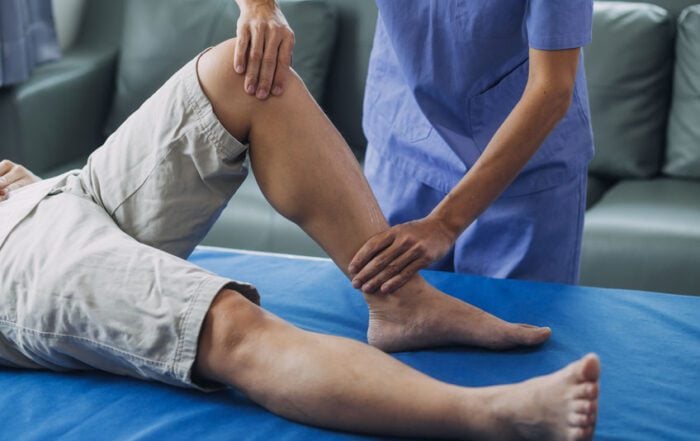The Rise And Rise Of Back Pain
At least 80% of adults will experience back pain, which can impact work, sports, and social activities at some point in life. Back pain can also limit movement, which causes further damage. Doctors are now seeing a rise in patients with complaints of chronic back pain. Upon observation, an underlying condition is often to blame. Most cases are caused by sedentary lifestyles, poor diets, smoking, and obesity. While some people can benefit from non-surgical options, lumbar decompression is a practical, long-term procedure to reduce pain and improve the quality of life.

What causes lower back pain?
The occasional back pain is usually caused by sprains or strains of the muscle. However, a chronic condition is often due to a spinal problem. A herniated disc and degenerative disc disease (DDD) are 2 primary reasons for back pain. The discs between the vertebra aid in support and shock absorption of the spine. If the discs shift out of place or degrade over time, the patient can experience nerve pain and stiffness. Other spinal conditions include spinal stenosis and spondylolisthesis.
Lumbar decompression can help
Most patients with back pain benefit from physical therapy (PT) and pain management. However, if there is no relief after an extended treatment period, surgery is an option. An orthopedic or spinal surgeon will often recommend lumbar decompression. Conditions like herniated discs or DDD often lead to compression of nearby nerves, which is the source of the pain. Lumbar decompression seeks to relieve the symptoms by making surgical adjustments to the spine. For example, the surgeon may attempt a discectomy, laminectomy, or spinal fusion.
What to expect during surgery
Thanks to medical advancements, lumbar decompression can occur using minimally invasive surgery. In other words, the surgical team will use several tiny incisions to access the spine. During lumbar decompression, the patient is given general anesthesia, and the surgeon removes the damaged disc. Some patients also receive laminectomy, which removes part of the bones that connect the vertebrae. The surgeon will then install a metal cage or plate to allow the bones to fuse.
Pain relief is possible
Lumbar decompression relieves the pressure on the surrounding nerves. As a result, surgery significantly reduces pain in the lower back and lower limbs. In addition to surgery, the patient will also require PT to strengthen the muscles around the spine. However, statistics show that lumbar decompression procedures have a high success and satisfaction rate.
Are you a candidate?
Although lumbar decompression is effective, the procedure is not for every individual. The best candidates have suffered from chronic back pain and have tried conservative options without success. Potential patients should not have any existing illnesses that would affect the surgery. Patients who have had a past spinal fusion or disc replacement should not attempt lumbar decompression.
Lumbar decompression for less pain
Chronic back pain restricts movement and daily activities. Lumbar back pain can lead to weakness and poor quality of life if left untreated. With decompression surgery, patients have less pain and stiffness. By relieving the pressure on the nerves, lumbar decompression will soon become the go-to procedure for millions of patients.
Recent Posts
What To Do About Hip Pain: Is It Time To See An Orthopedic Surgeon About Labral Repair?
Hip pain should not be overlooked, as the issue could be a labral tear. Symptoms like pain and instability require an orthopedic surgeon’s assessment.
ACL Repair: Will You Have Range Of Motion With Your Knee After Recovery & Physical Therapy?
After an ACL injury, ROM can be negatively affected. ACL repair surgery helps restore function, but physical therapy is essential to ROM.
Arthroscopy: What Are The Benefits Of This Minimally Invasive Outpatient Orthopedic Procedure?
Arthroscopy can help diagnose or treat joint conditions. Benefits of the MIS include faster recovery, less pain, and fewer scars.
Posterior Interbody Lumbar Fusion: What Are The Benefits Of PLIF For People With Back Pain?
People with chronic back pain may benefit from posterior interbody lumbar fusion surgery. PLIF can reduce pain and improve stability.








